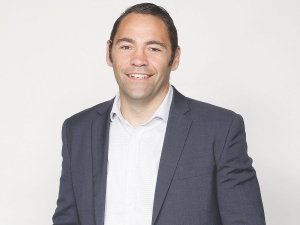An aggregate 10% cash return during 2018-19 is shown in the first full year financial results of MyFarm’s horticultural and commercial rural property syndicates.
This covered nine MyFarm syndicates in permanent crops including vineyards, apple, kiwifruit, avocado orchards and two commercial properties.
MyFarm head of investment research Con Williams told Rural News MyFarm has begun offering a wider variety of investments in farming. It began this in 2015-16 and now has nine syndicates producing cash returns.
Williams expects positive results will continue.
This is the first release of the syndicates’ full year results. They look at the sector and its prospects, the quality of the asset and the partnership and any special factors that come with that.
“If all those three things continue to perform we expect good returns in the future,” Williams says. “Definitely from a sector point of view at the moment things are looking pretty solid.”
MyFarm has set up 17 permanent crop syndicates since 2015, widening out from its former focus on dairy only.
Williams says the company’s Bay of Plenty SunGold kiwifruit orchard syndicates show what can be achieved. They yielded cash returns of 14-26% in 2018-19. If the rise in orchard capital values were included the overall result would be even better.
“Kiwifruit’s impressive run in 2018-19 was maintained as Zespri maintained strong orchard-gate returns. Exports to China and North America increased, and [good weather] and first class management by the DMS Progrowers team produced good quality crops.”
In contrast, he says, the MyFarm apple, vineyards and commercial property investment syndicates in rural areas generate solely lease incomes and cash returns of 6-8%. However he says that as production kicks in on the developing apple orchard, returns from the profit share arrangement with the lessee is forecast to generate double digit cash returns.
Williams also acknowledges the risk of problems such as occurred with a Northland avocado investment property hit by harvest timing, pest and market access issues. Of these, whatever is controllable has been addressed for the coming season and investors have since bought a neighbouring avocado orchard.
MyFarm in 2017 and 2018 also went into bareland developments in hop gardens, cherry orchards, manuka plantations and Rockit apple orchards. These yield no or low returns whilst the plants mature, but they have the advantage of new, improved varieties planted at scale in modern formats. The earliest of these will start contributing cash returns in full year 2020.











